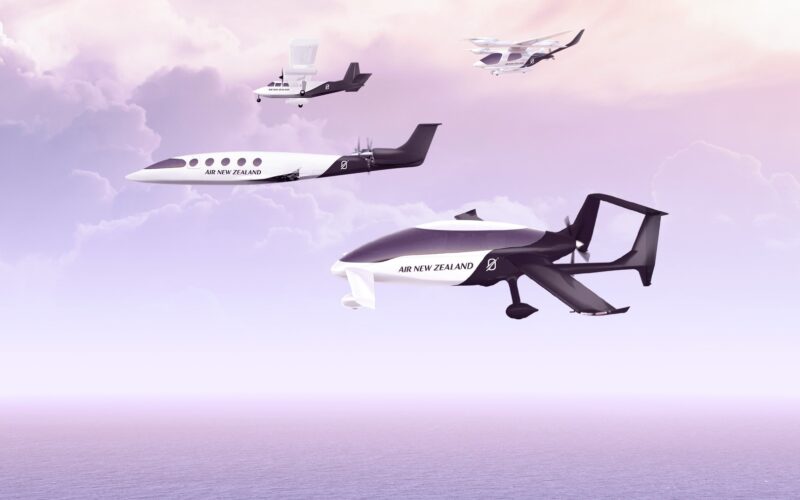Air New Zealand has named four partners it will work with on its mission to conduct its first zero emissions demonstrator flight from 2026.
Eviation, VoltAero, Cranfield Aerospace and Beta will work in partnership with the flag carrier to develop a combination of electric, green hydrogen, and hybrid aircraft together with the associated technology and infrastructure required to make flying these aircraft operational in New Zealand, Air New Zealand revealed in a statement.
“These partnerships involve Air New Zealand signing a “statement of intent to order”, a document which demonstrates its ambition to acquire three aircraft initially, with further options for 20, from one or more of the partners subject to an evaluation process,” the airline said.
Air New Zealand selected the partners based on the stage of aircraft development and a shared goal of beginning to take ambitious action on climate change, the airline’s chief executive officer Greg Foran noted. “Mission NextGen Aircraft is not about backing one innovator. It’s about working with a range of leaders in zero emissions aircraft technology to help move the whole ecosystem along. Our goal is to confirm our commitment with one or more of these partners in the next 12 months with the ambition of purchasing an aircraft for delivery from 2026,” Foran said.
“The learnings we will take from flying an aircraft with next generation propulsion technology from 2026 will then pave the way for our long-term partners to deliver an aircraft that can replace our Q300 turboprop domestic fleet,” he added.
Air New Zealand also signed an agreement with Hiringa Energy, a New Zealand-based green-hydrogen supply and refueling infrastructure company.
Commenting on the agreement, Foran said infrastructure partners will be pivotal in achieving its mission. “Through this agreement we will explore the future green hydrogen supply solutions for our commercial demonstrator ambitions with a focus on ensuring any solutions we create to meet our 2026 goal are also building a platform for a larger next generation fleet from the 2030s,” Foran explained.

